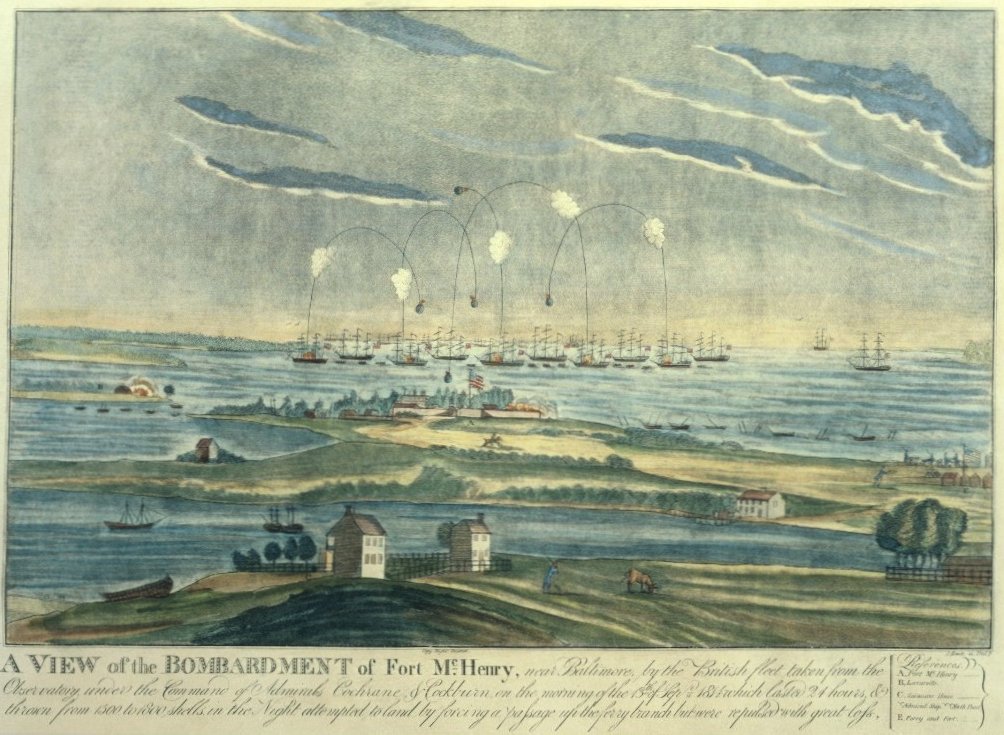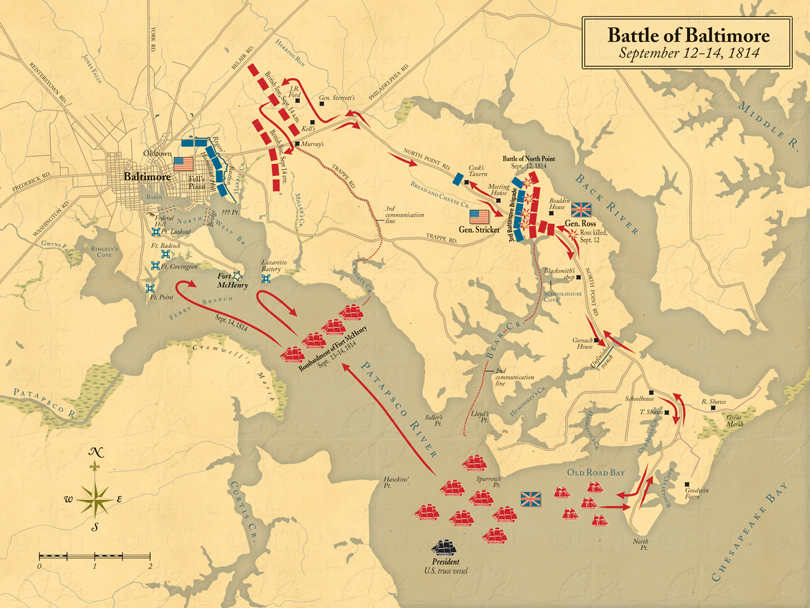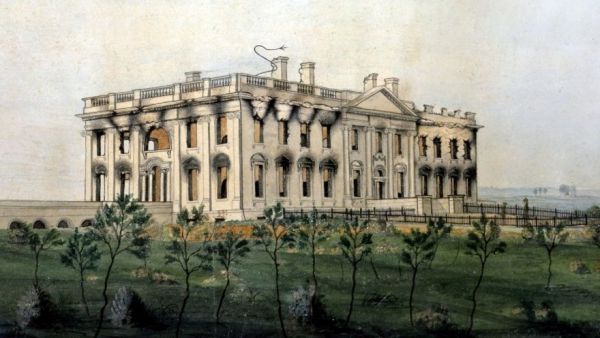 |
| Bombing of Fort McHenry by the British. Engraved by John Bower |
It was a galling sight for British seamen to behold. And as the last vessel spread her canvas to the wind, the Americans hoisted a most superb and splendid ensign on their battery and fired at the same time a gun of defiance... When the squadron retreated from Baltimore, sullen discontent was displayed and malevolent aspersions cast upon our veteran chief...
~ Midshipman Robert Barrett, RN (1799-1828) (on the British withdrawal from Baltimore, "Naval Recollections of the American War")
Without any clash on the battlefield the young American republic had humbled the might of the British empire. The rebuff of Britain at Baltimore decisively demonstrated America's independence of its former master. And this explosion of national pride was only to be magnified by the events of the remaining months of the war.*
~Peter Snow (b.1938) (When Britain Burned the White House - the 1812 Invasion of Washington,** Ch. 21)
 |
| Larger version of map here |
September 13th and 14th mark the anniversary of the Battle of Baltimore (wiki) during the War of 1812, remembered primarily for the unsuccessful British bombardment of Fort McHenry and Francis Scott Key's penning the words of "The Star-Spangled Banner" while interned on a British warship.
President James Madison had declared war on Great Britain in June 1812 in response to interference with American shipping and the impressment of U.S. merchant seamen during the Napoleonic wars, as well as the British stirring up the Indians of the Ohio Valley to resist American settlement. Following an abortive American invasion of southern Canada, the British sent a modest naval and marine force - newly freed up from the Spanish campaign against Napoleon - to the Chesapeake in retaliation.
 |
| The burned White House by George Munger, White House Historical Association |
By then, however, the Americans had rallied their own forces, stopped the (outnumbered) British at the Battle of North Point, and fought off the Royal Navy's attempt to reduce Fort McHenry on the night of September 13th - 14th. In the face of these failures, the badly over-extended British expedition withdrew southward and departed the Chesapeake Bay to prepare for the New Orleans campaign. And as for "The Star-Spangled Banner," here's the verse we never sing:
Oh! thus be it ever, when freemen shall stand
Between their loved home and the war's desolation!
Blest with victory and peace, may the heav'n rescued land
Praise the Power that hath made and preserved us a nation.
Then conquer we must, when our cause it is just,
And this be our motto: "In God is our trust."
And the star-spangled banner in triumph shall wave
O'er the land of the free and the home of the brave!
Here's a rather well-done shortish documentary:
The U.S. Marine Band plays the National Anthem:
* The reference here is to the American victories on Lake Champlain (8-11 September 1814) and in the Battle of New Orleans, 8 January 1815, the second of which was actually fought two weeks after the Treaty of Ghent ended the war.
** This recent book (St. Martin's Press, New York, 2013) presents a lively and readable account of the British invasion of Washington and the attack on Baltimore during the War of 1812. It should be remembered that all of this happened while Britain was deeply preoccupied with her struggle against Napoleon. He had been exiled to Elba as recently as April 1814 but would return to France on 20 March 1815 to fight the Hundred Days Campaign, which culminated in the Battle of Waterloo on 18 June.
John Farrier at Neatorama has an excellent article on the same subject.
John Farrier at Neatorama has an excellent article on the same subject.
Parts of the text above are adapted from the late, great Ed Whitman's Quotation of the Day. In addition to being my partner, my best friend, and Grandpa to the many kids who call me Grandma, Ed is also the author of Hunters and Killers: Volume 1: Anti-Submarine Warfare from 1776 to 1943 and Hunters and Killers: Volume 2: Anti-Submarine Warfare from 1943.
